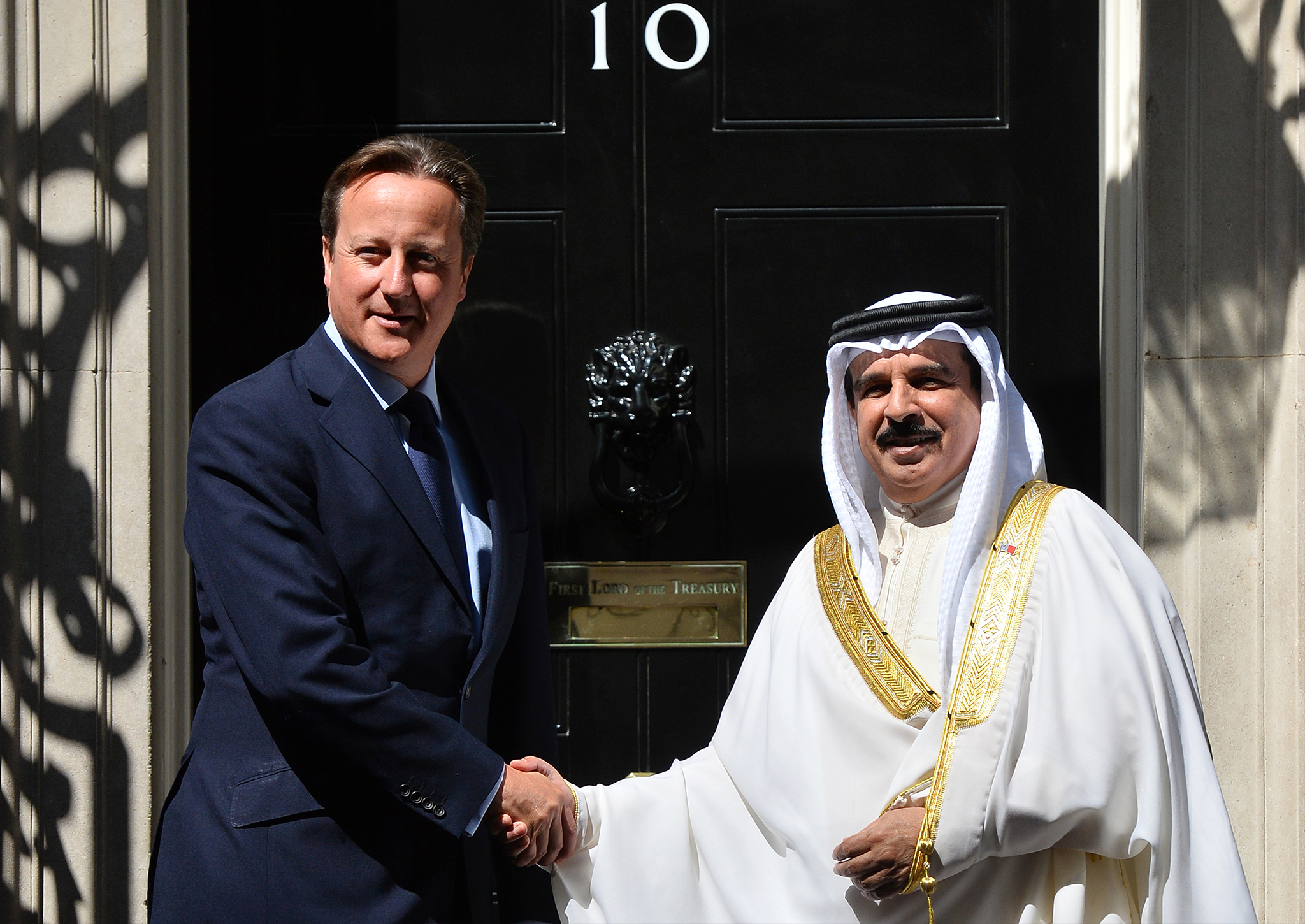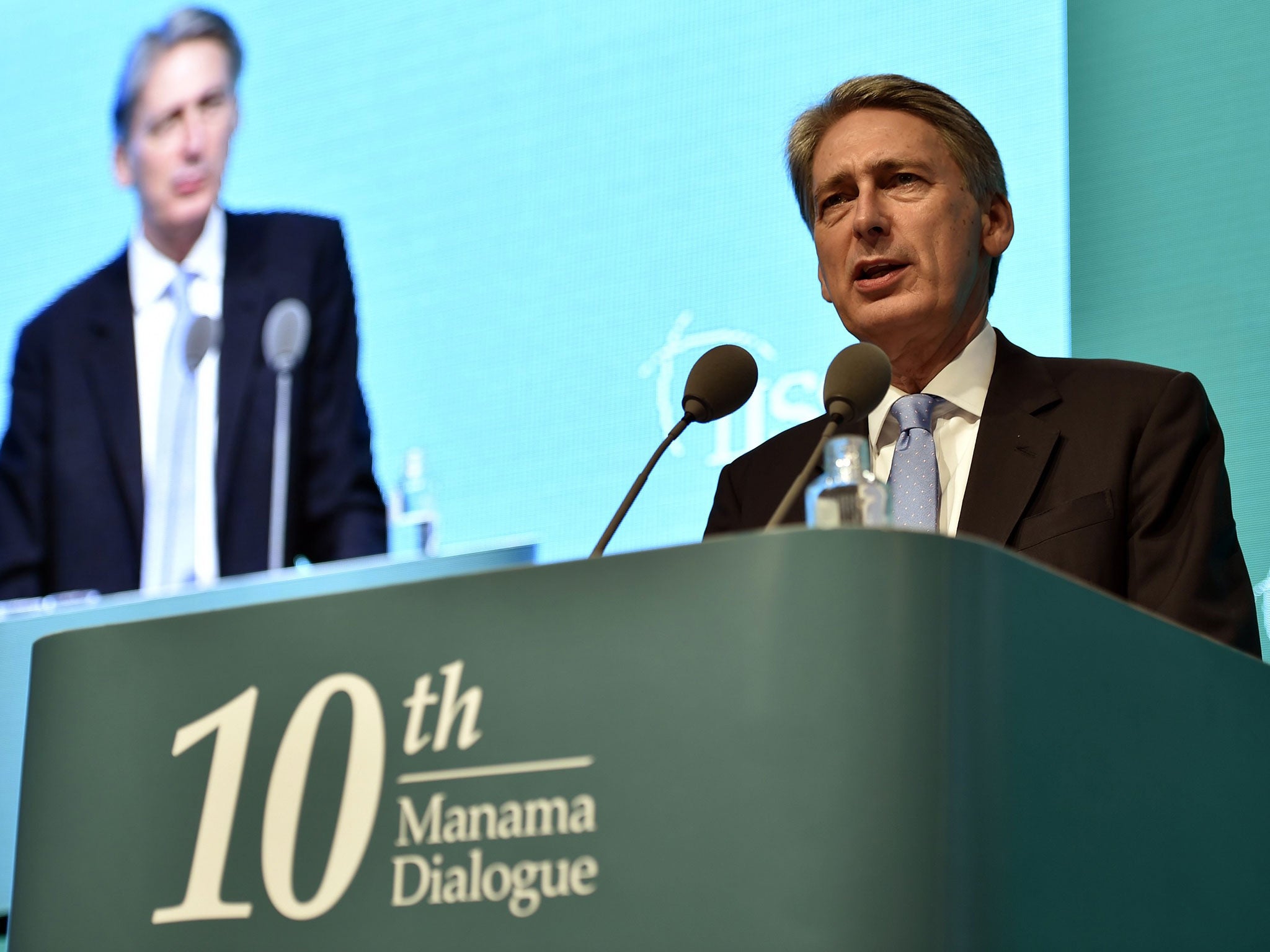Bahrain is ruthlessly crushing dissent and torturing its own citizens, yet Britain is heaping it with praise
The idea peddled by the UK that the country is reforming is a complete myth

British Foreign Secretary Philip Hammond met with the Crown Prince of Bahrain earlier this week. He was there to discuss their “shared regional and strategic goals” and “reaffirm the UK’s commitment” to strengthening their ties with the Gulf monarchy.
Just a day earlier, a Bahraini court had extended the detention of one of the country’s most prominent human rights activists, Nabeel Rajab, for another two weeks. His alleged crime? Tweeting about torture and the war in Yemen.
Hammond has previously told the House of Commons that Bahrain, a long-standing ally and former protectorate of the UK, is “a country which is travelling in the right direction” and “making significant reform”. Last April, the Foreign Office even went as far as to predict that the country’s “overall trajectory on human rights will be positive” due to the “judicial and security sector” reforms being implemented. Delighted by the assessment, pro-government media in Bahrain repeated the Foreign Office’s claims with approval.

A year later, Amnesty International have published a report which points to a much bleaker picture of Bahrain’s alleged progress in implementing reform. Their research finds that, contrary to the Foreign Office’s predictions, “the human rights situation today remains dire and little has changed in practise”. Reforms have “so far proved inadequate” and have had “little impact” on the ground. “Torture remains rife”, “repression is widespread”, and impunity has been “entrenched”, rather than challenged, by the “inadequate investigations” led by state institutions set up apparently to bring greater accountability to Bahrain’s allegedly highly abusive security forces.
A case in point is the sentencing to death in February of three Shi’ite men accused of involvement in a bombing which killed three police officers in March 2014. Two of the defendants claim to have been forced to confess under torture, the details of which, as documented by both Amnesty and Bahraini human rights groups, are horrifying.
Abbas al-Samea, a 25-year-old teacher, says he was taken from room to room in Bahrain’s notorious Criminal Investigations Directorate (CID) where he was sexually assaulted, burnt with cigarettes and given electric shocks on his genitals. Sami Mushaima, also detained at the CID, says he was punched in the mouth until he lost his front teeth, beaten all over his body and anally raped with an unknown object. Along with their co-defendant Ali Abdulshaheed al-Singace, both men were later found guilty in a trial which was widely condemned as unfair by human rights organisations.
According to Amnesty, the use of torture in cases like this “appears to be systematic”. Women and children are not exempt either. In November last year, at least thirteen women were arrested and allegedly tortured for organizing a public referendum in the run-up to parliamentary elections which were boycotted by the opposition. Around six months prior to that, Rayhana al-Mousawi was sentenced to five years in prison on charges which she confessed to after allegedly being beaten, stripped naked and threatened with rape and electric shocks. Even children as young as thirteen have reportedly been tortured on a “routine basis” to extract forced confessions.
Under the reforms initiated by the government in response to the Bahrain Independent Commission of Inquiry (BICI), alleged abuses like these were supposed to have been stamped out and the officers responsible brought to justice. Amnesty’s report, however, finds that the institutions set up to do this are “not sufficiently independent, impartial or transparent” and have “largely failed to have a significant impact” on the ground.
The Special Investigations Unit (SIU), for example, was established by the Bahraini government in 2012 to “determine the criminal liability of government officials” responsible for abuses. Yet according to Amnesty, their investigations have “resulted in relatively few cases of alleged human rights violations being referred for trial, and most that have gone to trial have resulted in acquittals or...the imposition of lenient sentences that failed to reflect the gravity of the case.”
Judicial reform – cited by the Foreign Office as evidence of Bahrain’s improving human rights record – has seemingly also had little impact in practise, with Human Rights Watch (HRW) concluding last year that “Bahrain’s problem is not a dysfunctional justice system, but rather a highly functional injustice system. “ HRW’s UK director David Mepham has since dismissed the Foreign Office’s claims of judicial reform as “unfounded” and said “there is simply no basis” for its assertion that Bahrain’s “trajectory on human rights will be positive”.
If anything, the human rights situation is getting worse. In the last five months, several of the country’s most prominent human rights activists – including Nabeel Rajab, Zainab al-Khawaja and Maryam al-Khawaja - have been sentenced to jail. Sheikh Ali Salman, the leader of the country’s largest opposition movement al-Wefaq, has also been put on trial for allegedly inciting regime change.
The space for political opposition is Bahrain is thus disappearing quickly. According to the democracy-monitoring NGO Freedom House, the level of freedom in the country has declined year on year since the reform process began. In view of the available evidence, HRW’s deputy Middle East and North Africa director Joe Stork concludes that “it’s difficult to see how anyone could claim with a straight face that Bahrain is on the path to reform. Unfortunately”, he says, “Bahrain’s allies in the West, in particular the UK, have become adept at seeing only what they wish to see.”

Join our commenting forum
Join thought-provoking conversations, follow other Independent readers and see their replies